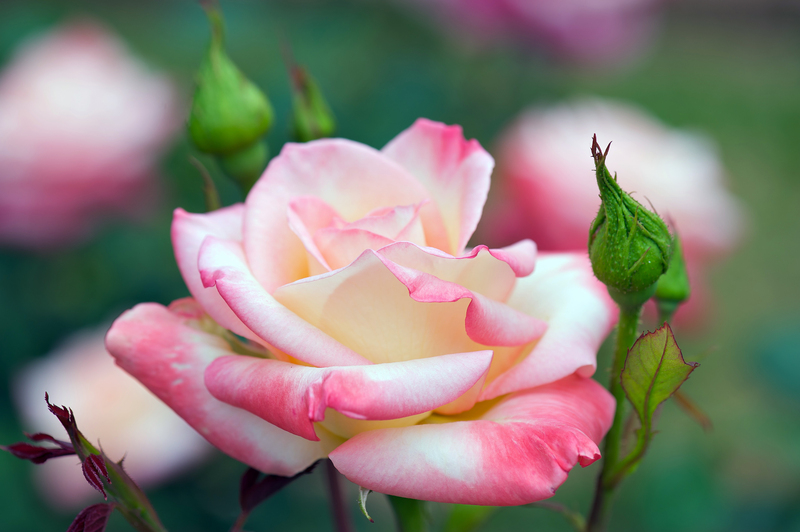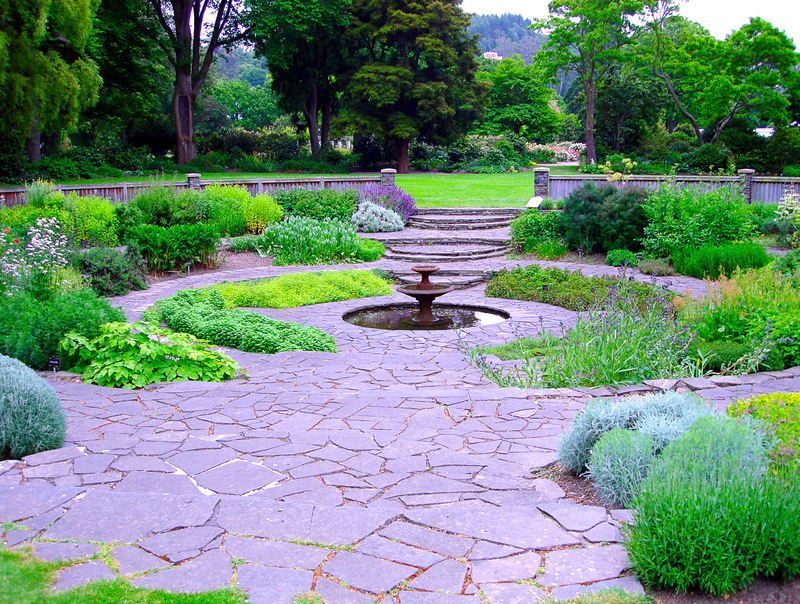Explore 9 Key Gardening Tips to Kickstart Your Hobby
Posted on 13/09/2025
Explore 9 Key Gardening Tips to Kickstart Your Hobby
Are you looking to start growing your own plants, vegetables, or flowers for the first time? Gardening is not only a relaxing and rewarding hobby, but it also offers fresh produce, beautiful landscapes, and a variety of health benefits. Whether you're a complete beginner or looking to polish your skills, this comprehensive guide'll walk you through nine essential gardening tips to set you up for success on your green-thumb journey.
Why Start Gardening: The Benefits of Cultivating Your Own Garden
Before diving into practical advice, it's important to grasp why so many people fall in love with gardening. Here are just a few reasons to start your horticultural hobby:
- Physical activity: Gardening provides light to moderate exercise, helping you stay active.
- Mental health: Tending to plants can reduce stress, anxiety, and boost your mood.
- Fresh produce: You can enjoy fresher, tastier, and healthier vegetables or herbs straight from your garden.
- Aesthetic enhancement: A well-maintained garden adds beauty and value to your home.
- Sustainability: Growing your own food helps the environment and reduces your carbon footprint.
Ready to dig in? Let's explore the top gardening tips for beginners and aspiring hobbyists!

1. Choose the Right Location for Your Garden
One of the most crucial steps in starting your gardening journey is picking the right spot. Plants require proper amounts of sunlight, water, and shelter. Here's what to consider:
- Sunlight: Most fruits and vegetables need at least 6-8 hours of direct sunlight daily. Observe your yard throughout the day to identify the sunniest areas.
- Accessibility: Place your garden where it's easy to reach for frequent watering, harvesting, and weeding.
- Protection: Avoid windy or highly trafficked areas that might damage delicate plants.
- Soil drainage: Ensure water doesn't pool in your chosen location since too much moisture can rot roots.
Tip: If outdoor space is limited, consider container gardening on balconies or patios; even a sunny windowsill can support a small herb garden!
2. Understand Your Soil
Knowing your soil quality is fundamental for healthy plant growth. Different plants thrive in different soil types.
- Test your soil: Use a simple soil test kit from a garden center or send a sample to a local cooperative extension service for analysis.
- Soil texture: Is it clay, loam, sand, or silt? Loamy soil is generally best for most gardening.
- Amend as needed: Add organic matter like compost or aged manure to improve nutrient levels and drainage.
- Adjust pH: Most vegetables prefer a pH of 6.0 to 7.0. Lime or sulfur can adjust soil pH when necessary.
Focusing on your soil's health is one of the best key gardening tips for beginners to master.
3. Start Small and Build Gradually
Ambition is great, but starting your gardening hobby with a small, easily managed plot can prevent you from feeling overwhelmed. Here's how to begin:
- Pick a few types of easy plants: Leafy greens, marigolds, or radishes are excellent for beginners.
- Container gardening: If you lack open ground, start with pots or raised beds; these are easier to control and maintain.
- Pay attention: A small space lets you monitor plants closely and learn quickly from your experiences.
Once you've built confidence, expand bit by bit. This approach ensures steady progress and minimizes frustration.
4. Select Suitable Plants for Your Region
Not every plant will thrive in your area's climate or soil. Use these tips to ensure gardening success:
- Consult planting zones: Look up your USDA Plant Hardiness Zone or similar local systems for guidance on what's likely to grow best.
- Native plants: Choosing flora that naturally thrives in your area often results in less maintenance and more robust growth.
- Consider the season: Start with cool-weather crops in spring and late summer, and warm-weather varieties after the last frost.
Researching and selecting the right plants is a fundamental gardening tip for hobbyists that pays off with healthier, lusher growth.
5. Learn Proper Watering Techniques
Watering is both an art and a science in gardening! Here are some pointers for optimal plant hydration:
- Water early: Mornings are best for watering, as it gives plants time to dry out and deters mold and mildew.
- Deep, infrequent watering: Rather than shallow daily sprinkles, water deeply just a couple times a week for strong root systems.
- Check soil moisture: Stick your finger into the soil about 2 inches; water if it feels dry, hold off if it's moist.
- Avoid wetting leaves: Water the base to minimize disease risk.
- Mulch: Adding mulch helps retain moisture, suppress weeds, and moderate soil temperature.
Good watering habits are critical for a thriving garden and make your gardening hobby more rewarding.
6. Feed and Mulch Your Plants
Plants, much like people, benefit from a balanced diet. To nurture robust growth, remember:
- Fertilize regularly: Use natural compost, aged manure, or slow-release fertilizers to provide essential nutrients.
- Apply mulch: Organic mulch (like wood chips, straw, or leaves) locks in moisture, regulates temperature, and adds nutrients as it breaks down.
- Monitor fertilizer: Over-fertilizing can harm plants. Always follow label instructions!
By incorporating feeding and mulching into your routine, you'll see better yields and more vibrant blooms.
7. Stay Ahead of Weeds and Pests
Garden pests and invasive weeds can quickly overrun a budding garden hobby. Here's how to keep them at bay:
- Mulch and ground cover: These naturally suppress weed growth.
- Hand weeding: o Regularly inspect and pull out weeds before they go to seed.
- Encourage beneficial insects: Ladybugs, lacewings, and predatory beetles feed on harmful pests. Planting flowers like marigolds can attract these helpers.
- Use barriers: Simple row covers or netting can protect crops from birds and insects.
- Organic pest solutions: Neem oil, insecticidal soaps, or companion planting are eco-friendly choices for pest control.
Early intervention is the key to beating weeds and pests!
8. Practice Patience and Tune Into Nature
Patience is essential when you're nurturing life. Plants grow on their own schedules, and setbacks are part of the learning process. Remember:
- Observe regularly: Noticing changes helps you respond early to problems.
- Keep a gardening journal: Track plantings, harvests, successes, and failures for reference in future seasons.
- Embrace imperfections: Not everything will go as planned--and that's okay! Each mistake is an opportunity to learn and improve your garden skills.
Gardening is an ongoing dialogue with the environment, teaching us to respect the rhythms of nature.
9. Keep Growing: Keep Learning
The best way to become an accomplished gardener is through continuous learning and experimentation.
- Read books and articles: There's a wealth of gardening knowledge available online and in print.
- Join local clubs: Meet other garden enthusiasts; sharing advice, seeds, and stories is invaluable.
- Experiment: Try growing something new each season to expand your skills and discover new favorites.
- Attend workshops and tours: Hands-on experience and expert advice will boost your confidence.
Gardening is a lifelong journey of discovery that enriches both the garden and the gardener.
Bonus Gardening Tips for Beginners
- Label your plants for easy care and tracking.
- Use recycled containers for seed starting--egg cartons, yogurt cups, and more can work wonders.
- Rotate crops each year to prevent soil depletion and break pest cycles.
- Don't forget to celebrate your harvests--share them with friends and family!

Common Gardening Mistakes to Avoid
- Overwatering or underwatering plants.
- Ignoring soil health and pH.
- Planting out of season or choosing unsuitable species.
- Skipping regular maintenance tasks like weeding and pruning.
- Being too ambitious at first--start with a manageable garden and scale up.
Conclusion: Kickstart Your Gardening Hobby Today
With these nine essential gardening tips, you're well-equipped to start your journey as a hobbyist gardener. Remember to learn from your garden, be patient, and enjoy the process. From selecting the perfect spot to picking the best plants and implementing strong watering and feeding routines, every step will bring you closer to cultivating a thriving, beautiful garden.
Whether you have a sprawling backyard or a windowsill, these gardening tips for beginners and hobbyists are your roadmap to success. Why not get your hands dirty today and experience the joy of growing?
Happy gardening, and may your hobby grow in more ways than one!
Latest Posts
Creating a Safe and Fun Outdoor Space for Kids
Create a safe and fun outdoor space for children in your garden
Breathe New Life into Your Overgrown Garden Today

